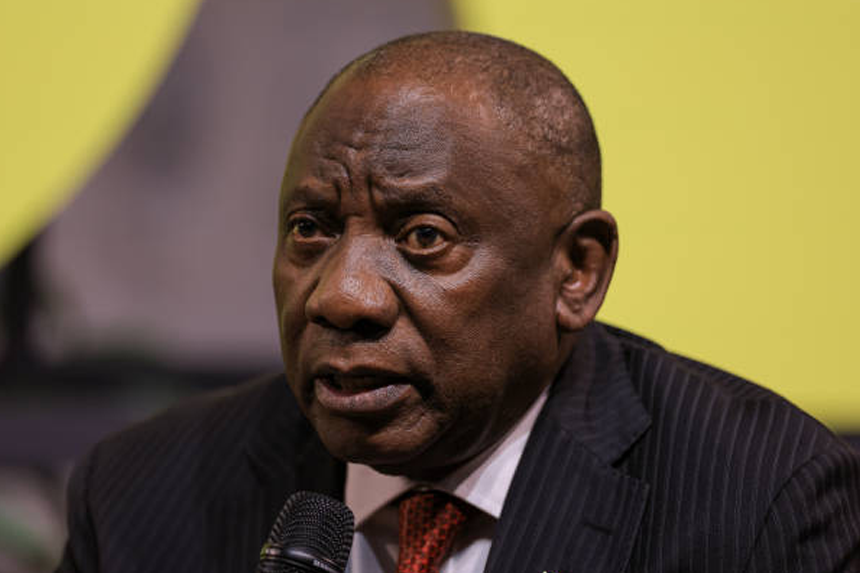After President Donald Trump voiced worries about the new land reform law of South Africa, President Cyril Ramaphosa acted to soothe hostilities with the US. Trump threatened to cut off all future financing to South Africa in response to the divisive bill allowing for land expropriation without compensation under specific criteria.
- What specifics of South Africa's new land legislation apply here?
- Why did Trump enter the conversation?
- In what sense does the new land legislation complement the background of South Africa?
- South Africa's land ownership distribution now is what?
- Might the new land law adopted by South Africa have negative economic effects?
- Regarding its land reform initiatives, what is ahead for South Africa?
President Ramaphosa spoke with tech entrepreneur Elon Musk, born in South Africa and closely connected to the Trump government, to help with the growing row. On social media, Musk had openly attacked the new land reform law for its unfairness. “Why does Ramaphosa have honestly racist ownership rules?” Musk posted on X—formerly Twitter.
Ramaphosa emphasized in his talks with Musk South Africa’s constitutional dedication to ideals of justice, fairness, and equality. Emphasizing that his government maintains the rule of law, the South African president made it abundantly evident that any actions carried out under the new land reform law would be fair and in the public good.
What specifics of South Africa's new land legislation apply here?
Signed by President Ramaphosa in January, the new land reform law allows under some conditions land expropriation without compensation. These include situations whereby land is underused, endangers people, or is not being developed or exploited to its best advantage. The administration of Ramaphosa stated that the laws were meant to redress the ingrained historical inequalities of property ownership in South Africa, not to inspire careless land expropriation.
Notwithstanding these explanations, some have expressed worries about the possible economic consequences of the bill, citing Zimbabwe’s disastrous land expropriation policies in the early 2000s, which caused a collapse in agricultural output and extensive poverty.
Why did Trump enter the conversation?
Trump’s response followed the passage by the parliament of South Africa on the new land reform legislation. He voiced his indignation on Truth Social, his social media channel. “I will be stopping all future funding to South Africa until a thorough inquiry of this circumstances has been finished!” Trump wrote. Later, he called the leadership of South Africa “terrible,” and “horrible.” “We will make a determination, and until such time as we find out what South Africa is doing — they’re taking away land and confiscating land, and actually, they’re doing things that are perhaps far worse than that,” he said.
Ramaphosa answered by saying the government had not yet taken any land. In his remarks, the president of South Africa underlined that, within a due process, the new law just permits expropriation in circumstances deemed “just and equitable.”
In what sense does the new land legislation complement the background of South Africa?
Rooted in the heritage of the British colonial era, land ownership has been a divisive problem in South Africa for almost a century. The Natives property Act, passed by the British government in 1913, drastically limited property ownership rights for the majority black people and gave great quantities of land under white minority rule. This prepared the ground for a century of forced removals and segregation, which persisted all through apartheid until 1994.
The South African government has battled to handle land reform since apartheid ended. The government used the “willing buyer, willing seller” approach until lately, which many detractors contend slowed down significant land reform. Though it remains rather divisive, the new land expropriation law aims to speed the process.
South Africa's land ownership distribution now is what?
Land ownership still disproportionately favors white South Africans even with major political developments after apartheid’s end. A 2017 government report states that white people still owned 72% of privately held land. On the other hand, based on the 2022 census, white people account just 7.3% of the national population.
The clear racial difference in land ownership has spurred constant demands for more forceful land reform to correct past injustices. Critics of the new law, however, caution that, drawing on Zimbabwe’s experience with similar regulations, it may alienate investors and damage the South African economy.
Might the new land law adopted by South Africa have negative economic effects?
Given Zimbabwe’s past of land seizures in the early 2000s, there are worries that the bill may have bad economic effects. Land expropriation policies in Zimbabwe caused huge unemployment and extensive economic collapse including a fall in agricultural output. Many South African critics worry that, should the government carry out the law without thought, their nation may suffer a similar destiny.
Nonetheless, the government of South Africa has tried to convince local and foreign viewers that it will only take expropriation of land under public interest justification and will follow the law. Still, the argument is contentious, and the world keeps close observation as things develop.
Regarding its land reform initiatives, what is ahead for South Africa?
The matter is still developing and many issues remain regarding the possible effects of the new land reform law on the economy and foreign policy of South Africa. The world will be observing how the government handles this difficult problem of land reform while juggling internal needs and foreign concerns while President Ramaphosa keeps proving the legitimacy of the bill.
The result of these debates will probably determine how land ownership is distributed in South Africa going forward and maybe affect the larger dialogue on land reform throughout the African continent.








